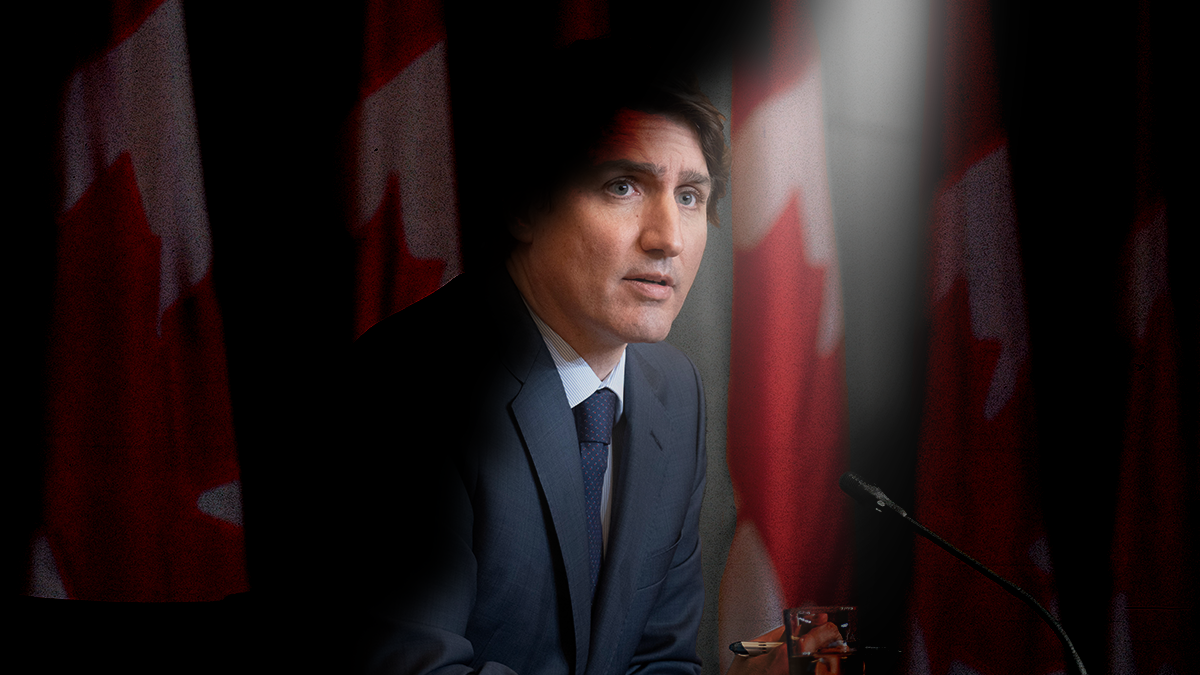The New Democratic Party, the socialist third party in Canada’s Parliament, gave Justin Trudeau an ultimatum at the weekend that could push him to the exit.
At a convention in Hamilton, Ontario, on Saturday, NDP members unanimously passed a resolution calling for the party to withdraw its support for Trudeau’s government unless he brings in a national socialized pharmacare system.
Since 2022, Trudeau has relied on the NDP to maintain his parliamentary majority, so he must now either spend billions providing free prescription drugs to every Canadian or risk an election he would almost certainly lose.
The opposition Conservatives have been leading in opinion polls since August, and it is getting harder to imagine that Trudeau will make a comeback. This week is the eighth anniversary of the 2015 election that brought him to power. If he leads his party into the next election, it will be his fourth. No Canadian prime minister has won four in a row since Wilfrid Laurier in 1908. Trudeau increasingly looks like he is living on borrowed time.
Inflation – bad for incumbents
The opinion polls look grim. All the pollsters show the Conservatives with a hardening lead in the 10-point range, which shows that many voters have decided that Conservative Leader Pierre Poilievre is an acceptable alternative.
The pugnacious Poilievre solidified his position in public opinion with a successful convention in September and is now seen as a preferred prime minister by 33% of Canadians, 10 points ahead of Trudeau. He keeps gathering momentum with deft social media performances. The polls show his party would win a majority if an election were held today.
Philippe J. Fournier, editor-in-chief of poll aggregator 338Canada.com, says the last time a Canadian government was this unpopular was likely in the 1990s when Brian Mulroney was prime minister. “At the federal level, I can't recall any precedent for a government that has two years to go that is so down in the polls.”
As in the United States, inflation is top of mind for voters. Numbers released Tuesday show Canadian inflation slowed to 3.8% in September, but prices are still too high for many. Inflation is mostly the result of global supply chain issues that started during the pandemic, but Poilievre has effectively blamed it on the free-spending ways of the Trudeau government. If Trudeau goes along with the NDP’s pharmacare ask, Poilievre will portray it as yet another costly government program.
Trudeau can’t tack to the right
Since making a deal with the NDP, Trudeau has enjoyed the comfort of knowing that his government won’t fall on a snap vote in the House, but it has constrained him from advancing more centrist economic policies that might appeal to voters who have voted Liberal but are now planning on giving the Conservatives a try.
There is no threat of an imminent election — the Liberals can drag their feet on pharmacare, and the NDP does not look to be in a hurry to end an arrangement that has given them a historically unusual level of influence over the federal government — but Trudeau is in a jam.
“On the one hand, they're talking about fiscal responsibility and the need to control spending,” says Graeme Thompson, a senior analyst with Eurasia Group's Global Macro-Geopolitics practice. “But on the other hand, they depend on fairly expensive promises to the NDP to implement new social policy. And at some point, those two things are incompatible. They are a little bit damned if you do, damned if you don't.”
Since many Liberal MPs are staring at the near-certain prospect of defeat, it’s possible that more of them will start to oppose unpopular Liberal policies, giving Trudeau’s government fresh headaches. They must be wondering if they would be better off under a different leader.
Alternatives to Trudeau
Several of his ministers are interested in the job, but none have much of a national profile, and it’s hard to know how they would do in the job.
Deputy Prime Minister and Finance Minister Chrystia Freeland — the most important minister in his government — won admiration for her forthright and energetic advocacy for Canada during trade negotiations with Donald Trump, but she has not demonstrated an ability to rally support for her economic policies, and it is not clear she would want the top job.
Foreign Affairs Minister Mélanie Joly is telegenic and enjoys a high profile, especially in Québec, where she is an important political organizer, but she struggled as heritage minister, and critics have portrayed her as a lightweight. Also, she is a Québecer, and by tradition, the Liberal party alternates leaders. It’s not a Québecer’s turn.
The popular and unbelievably energetic industry minister — François-Philippe Champagne — is another Québecer.
Treasury Board President Anita Anand, meanwhile, won praise for her work procuring vaccines during the pandemic and dealing with a sexual harassment crisis in the defense department, but she has not demonstrated the ability to connect with voters.
Some Liberals are longingly pinning their hopes on Mark Carney, former governor of both the Bank of Canada and Bank of England, but he has never held elected office, and the Conservatives say they would be delighted since he is just the kind of elitist that populist Poilievre would like to run against.
The good news for Trudeau is that there is no obvious successor waiting in the wings. The bad news for the Liberals? They can’t be sure that any of the alternatives would be any better.
